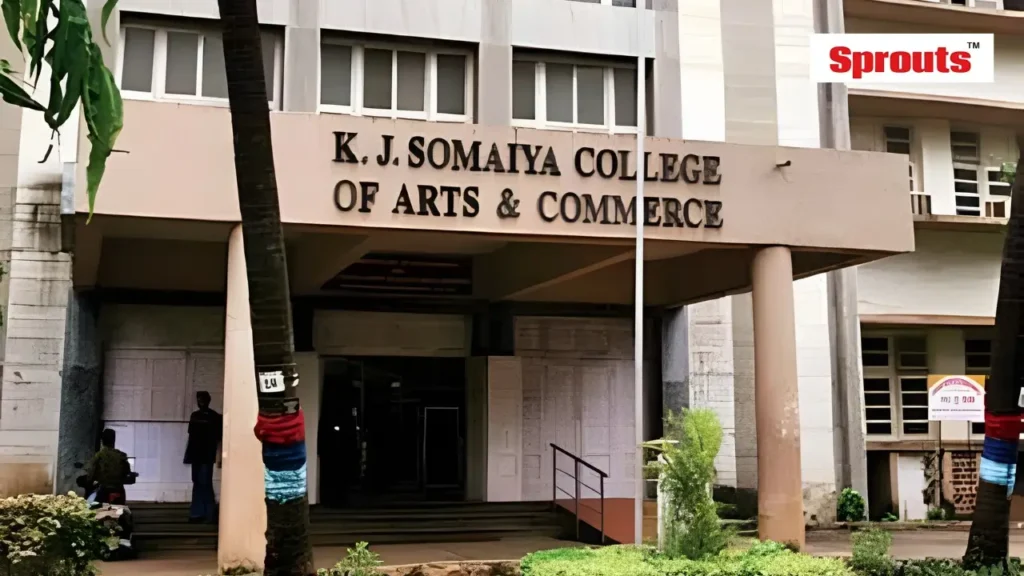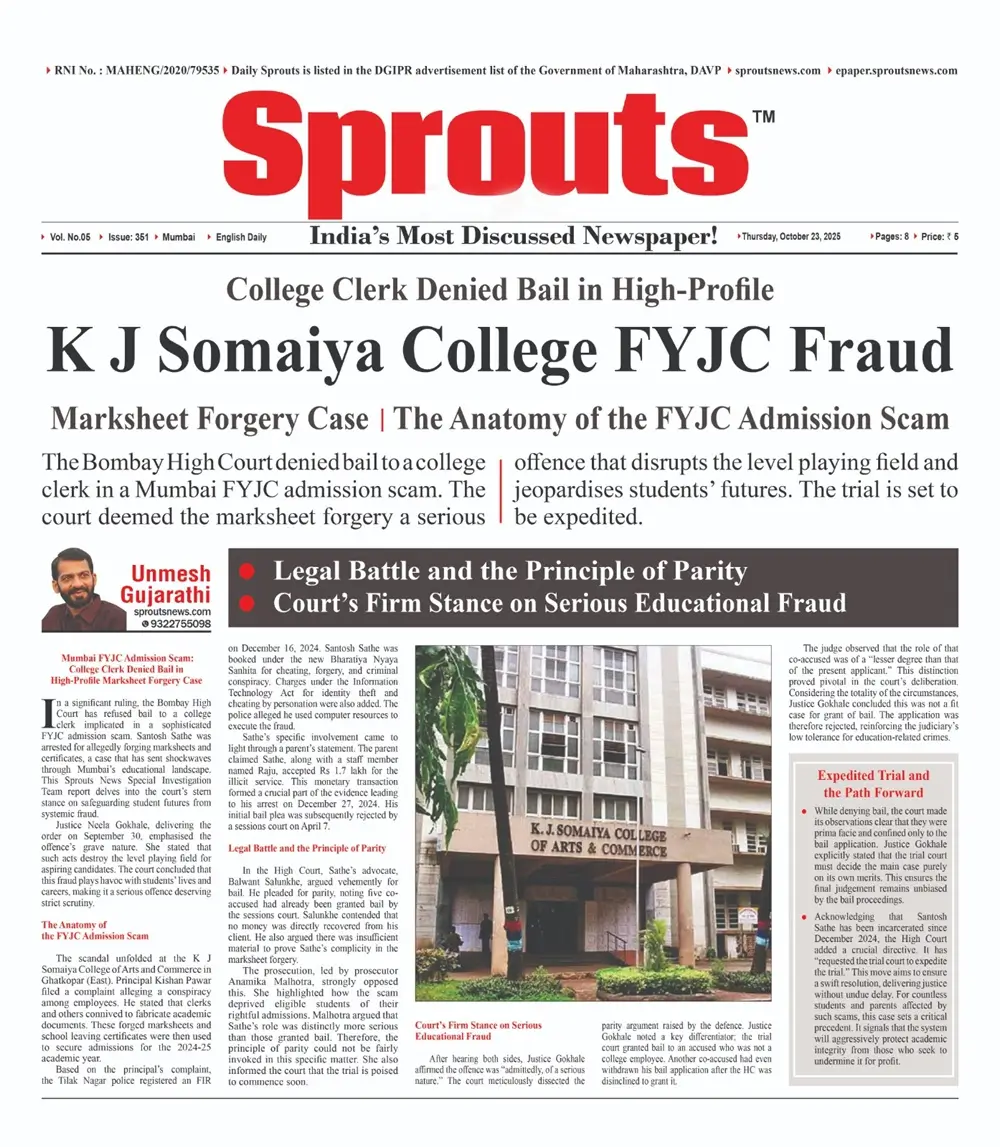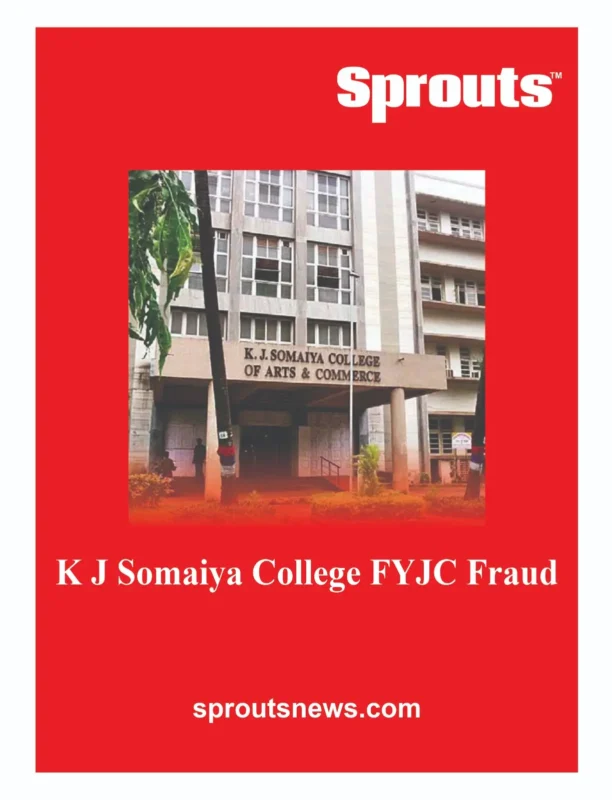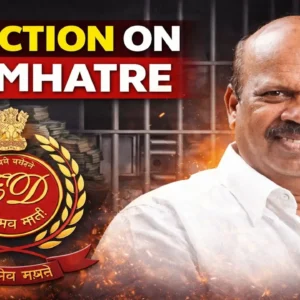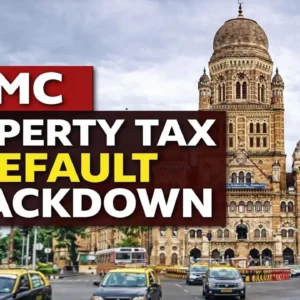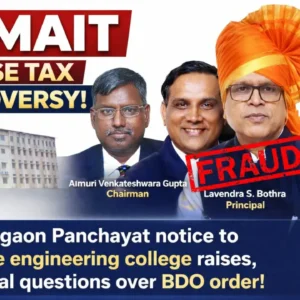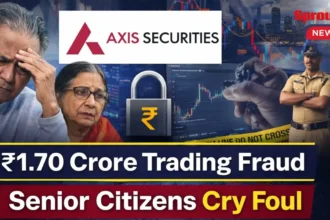Mumbai FYJC Admission Scam: College Clerk Denied Bail in High-Profile Marksheet Forgery Case
• The Anatomy of the FYJC Admission Scam
• Legal Battle and the Principle of Parity
• Court’s Firm Stance on Serious Educational Fraud
The Bombay High Court has denied bail to Santosh Sathe, a college clerk accused in the Mumbai FYJC admission scam involving forged marksheets. Justice Neela Gokhale called the offence a grave threat to the education system, stating it “destroys the level playing field” for genuine students. The court ordered an expedited trial, highlighting the need to protect academic integrity amid rising admission-related fraud in Mumbai’s colleges.
- Mumbai FYJC Admission Scam: College Clerk Denied Bail in High-Profile Marksheet Forgery Case
- • The Anatomy of the FYJC Admission Scam
- • Legal Battle and the Principle of Parity
- • Court’s Firm Stance on Serious Educational Fraud
- Mumbai FYJC Admission Scam: College Clerk Denied Bail in High-Profile Marksheet Forgery Case
Click Here To Download the News Attachment
Mumbai FYJC Admission Scam: College Clerk Denied Bail in High-Profile Marksheet Forgery Case
In a significant ruling, the Bombay High Court has refused bail to a college clerk implicated in a sophisticated FYJC admission scam. Santosh Sathe was arrested for allegedly forging marksheets and certificates, a case that has sent shockwaves through Mumbai’s educational landscape. This Sprouts News Special Investigation Team report delves into the court’s stern stance on safeguarding student futures from systemic fraud.
Justice Neela Gokhale, delivering the order on September 30, emphasised the offence’s grave nature. She stated that such acts destroy the level playing field for aspiring candidates. The court concluded that this fraud plays havoc with students’ lives and careers, making it a serious offence deserving strict scrutiny.
The Anatomy of the FYJC Admission Scam
The scandal unfolded at the K J Somaiya College of Arts and Commerce in Ghatkopar (East). Principal Kishan Pawar filed a complaint alleging a conspiracy among employees. He stated that clerks and others connived to fabricate academic documents. These forged marksheets and school leaving certificates were then used to secure admissions for the 2024-25 academic year.
Based on the principal’s complaint, the Tilak Nagar police registered an FIR on December 16, 2024. Santosh Sathe was booked under the new Bharatiya Nyaya Sanhita for cheating, forgery, and criminal conspiracy. Charges under the Information Technology Act for identity theft and cheating by personation were also added. The police alleged he used computer resources to execute the fraud.
Sathe’s specific involvement came to light through a parent’s statement. The parent claimed Sathe, along with a staff member named Raju, accepted Rs 1.7 lakh for the illicit service. This monetary transaction formed a crucial part of the evidence leading to his arrest on December 27, 2024. His initial bail plea was subsequently rejected by a sessions court on April 7.
Also Read: Ola CEO Bhavish Aggarwal Faces FIR in Employee Suicide Case.
Legal Battle and the Principle of Parity
In the High Court, Sathe’s advocate, Balwant Salunkhe, argued vehemently for bail. He pleaded for parity, noting five co-accused had already been granted bail by the sessions court. Salunkhe contended that no money was directly recovered from his client. He also argued there was insufficient material to prove Sathe’s complicity in the marksheet forgery.
The prosecution, led by prosecutor Anamika Malhotra, strongly opposed this. She highlighted how the scam deprived eligible students of their rightful admissions. Malhotra argued that Sathe’s role was distinctly more serious than those granted bail. Therefore, the principle of parity could not be fairly invoked in this specific matter. She also informed the court that the trial is poised to commence soon.
Court’s Firm Stance on Serious Educational Fraud
After hearing both sides, Justice Gokhale affirmed the offence was “admittedly, of a serious nature.” The court meticulously dissected the parity argument raised by the defence. Justice Gokhale noted a key differentiator; the trial court granted bail to an accused who was not a college employee. Another co-accused had even withdrawn his bail application after the HC was disinclined to grant it.
The judge observed that the role of that co-accused was of a “lesser degree than that of the present applicant.” This distinction proved pivotal in the court’s deliberation. Considering the totality of the circumstances, Justice Gokhale concluded this was not a fit case for grant of bail. The application was therefore rejected, reinforcing the judiciary’s low tolerance for education-related crimes.
Expedited Trial and the Path Forward
While denying bail, the court made its observations clear that they were prima facie and confined only to the bail application. Justice Gokhale explicitly stated that the trial court must decide the main case purely on its own merits. This ensures the final judgement remains unbiased by the bail proceedings.
Acknowledging that Santosh Sathe has been incarcerated since December 2024, the High Court added a crucial directive. It has “requested the trial court to expedite the trial.” This move aims to ensure a swift resolution, delivering justice without undue delay. For countless students and parents affected by such scams, this case sets a critical precedent. It signals that the system will aggressively protect academic integrity from those who seek to undermine it for profit.


